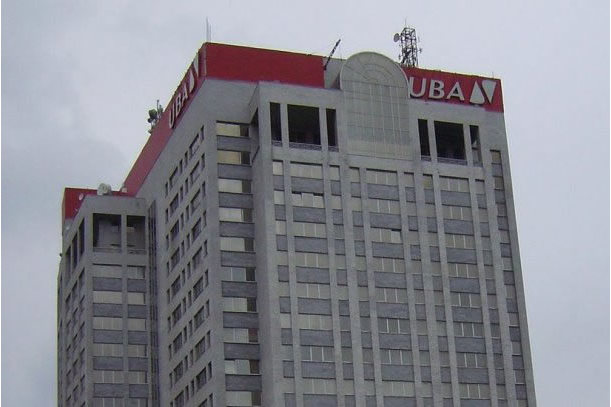Latest News
Fitch downgrades credit ratings of First Bank and UBA

News Highlight
- Fitch said loan impairments in the Nigerian banking sector are expected to rise in the wake of the naira devaluation.
Fitch Ratings said on Monday that it has downgraded the Long-Term Foreign Currency Issuer Default Ratings (IDR) of First Bank of Nigeria Limited (FBN) and United Bank for Africa (UBA), from ‘B+’ to 'B', although with a stable outlook.
The rating actions on the banks come less than three weeks after Fitch downgraded Nigeria’s sovereign ratings from 'BB-' to 'B+' on June, 23.
Fitch said its ratings action is driven by the weaker ability of the Nigerian state to support domestic banks, particularly in foreign currency, due to falling oil prices, which have reduced the country’s foreign exchange earnings and foreign currency reserves.
“Since the last review in February 2016, bank asset quality has continued to weaken with average impaired loans (NPL) ratios of about 6.2 percent at end-March 2016, although this is skewed by FBN's high NPL ratio of 21.5 percent,” the ratings agency said. “Impairments in banks are increasing in the commercial, trading and manufacturing segments, mainly due to foreign currency depreciation and scarcity.”
Fitch said First Bank's high NPL ratio is mainly due to the bank's exposure to the downstream oil sector even as NPLs in the oil sector continue to rise. The ratings agency also downgraded the “National Long-term Rating” of FBN Holdings (FBNH), the parent holding company of First Bank.
Fitch said loan impairments in the Nigerian banking sector are expected to rise in the wake of the naira devaluation. Nigerian companies that obtained loan facilities in foreign currencies will find it more difficult to service their loans at the current exchange rate.
“Sustained low oil prices and continuing production disruptions in the Niger Delta could cause industry NPL ratios to rise more dramatically,” Fitch Ratings added.
The ratings agency, however, affirmed the credit ratings of eight other Nigerian banks and affirmed the viability ratings (VR) of all Nigerian banks. Accordingly, the outlook on the IDR of Guaranty Trust Bank has been revised by the ratings agency to stable from negative due to GTBank’s strong earnings and stronger-than-expected liquidity.
Despite the slower asset growth and higher loan impairment charges, Fitch said it still expects banks to remain profitable in 2016 due to stronger earnings.
“Some banks have accumulated sufficient foreign currency liquidity to meet 2016 maturities and we believe that they are managing their liquidity risks commensurately with their VR levels, but refinancing risk on the banks' foreign currency obligations remains high,” said Fitch.
Furthermore, Fitch said it expects banks to post higher retained earnings to ease the impact of the naira devaluation that has also reduced the buffer between banks’ capital ratios and the regulatory minimum.
According to a recent report by the Central Bank of Nigeria, between April 2015 and April 2016, Capital Adequacy Ratio (CAR) of banks declined from 17 percent to 16.5 percent, although it is still above the prudential minimum of 10 percent.
Related News
Latest Blogs
- How far Nigeria’s maritime has come
- The curious case of Nigeria’s bans
- Why Africa will be missing on ‘Globalisation 3.0’
- The Nigerian high-interest-rate trap
- How Tinubu is ensuring equitable access to public services
Most Popular News
- Artificial intelligence can help to reduce youth unemployment in Africa – ...
- New report offers insights for successful private equity exits in Africa
- User account leaks fall in Nigeria, globally
- AWIEF 2025 mobilising stakeholders to recommit to gender equity
- Finnfund issues EUR 200 mn multi-tranche green and sustainable bonds
- Global financial stability risk high after success against inflation – IMF









